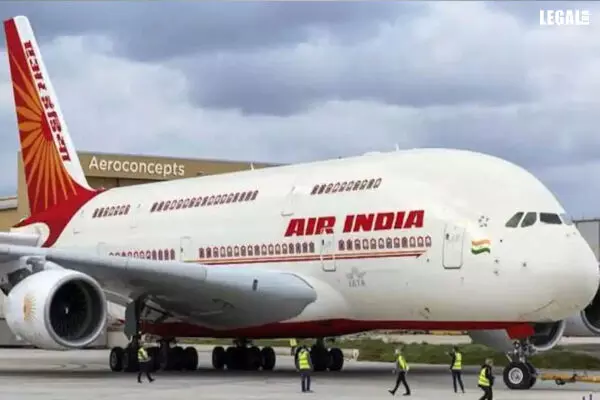- Home
- News
- Articles+
- Aerospace
- AI
- Agriculture
- Alternate Dispute Resolution
- Arbitration & Mediation
- Banking and Finance
- Bankruptcy
- Book Review
- Bribery & Corruption
- Commercial Litigation
- Competition Law
- Conference Reports
- Consumer Products
- Contract
- Corporate Governance
- Corporate Law
- Covid-19
- Cryptocurrency
- Cybersecurity
- Data Protection
- Defence
- Digital Economy
- E-commerce
- Employment Law
- Energy and Natural Resources
- Entertainment and Sports Law
- Environmental Law
- ESG
- FDI
- Food and Beverage
- Gaming
- Health Care
- IBC Diaries
- In Focus
- Inclusion & Diversity
- Insurance Law
- Intellectual Property
- International Law
- IP & Tech Era
- Know the Law
- Labour Laws
- Law & Policy and Regulation
- Litigation
- Litigation Funding
- Manufacturing
- Mergers & Acquisitions
- NFTs
- Privacy
- Private Equity
- Project Finance
- Real Estate
- Risk and Compliance
- Student Corner
- Take On Board
- Tax
- Technology Media and Telecom
- Tributes
- Viewpoint
- Zoom In
- Law Firms
- In-House
- Rankings
- E-Magazine
- Legal Era TV
- Events
- News
- Articles
- Aerospace
- AI
- Agriculture
- Alternate Dispute Resolution
- Arbitration & Mediation
- Banking and Finance
- Bankruptcy
- Book Review
- Bribery & Corruption
- Commercial Litigation
- Competition Law
- Conference Reports
- Consumer Products
- Contract
- Corporate Governance
- Corporate Law
- Covid-19
- Cryptocurrency
- Cybersecurity
- Data Protection
- Defence
- Digital Economy
- E-commerce
- Employment Law
- Energy and Natural Resources
- Entertainment and Sports Law
- Environmental Law
- ESG
- FDI
- Food and Beverage
- Gaming
- Health Care
- IBC Diaries
- In Focus
- Inclusion & Diversity
- Insurance Law
- Intellectual Property
- International Law
- IP & Tech Era
- Know the Law
- Labour Laws
- Law & Policy and Regulation
- Litigation
- Litigation Funding
- Manufacturing
- Mergers & Acquisitions
- NFTs
- Privacy
- Private Equity
- Project Finance
- Real Estate
- Risk and Compliance
- Student Corner
- Take On Board
- Tax
- Technology Media and Telecom
- Tributes
- Viewpoint
- Zoom In
- Law Firms
- In-House
- Rankings
- E-Magazine
- Legal Era TV
- Events
Writ Petitions irrelevant after Air India's privatization : Delhi High Court

Writ Petitions irrelevant after Air India's privatization : Delhi High Court
It held that a non-statutory contract of service was not enforceable under the Indian Constitution
The Delhi High Court has dismissed a batch of petitions by former commanders and co-pilots of Air India challenging their termination from services due to the Covid-19 pandemic-induced stress in the civil aviation sector.
The single-judge bench of Justice Yashwant Varma dismissed the pleas in the Naresh Kumar Beri & Ors vs Union of India & Ors case, noting that since Air India Limited (AIL) had ceased to be a government company on its disinvestment, the writ petitions against it would no longer be maintainable.
Agreeing with the recent observations by the Bombay High Court and the Karnataka High Court, Justice Varma stated, "We find merit in the objection addressed on behalf of the respondents who contended that since AIL ceased to be a government company by virtue of the exercise of privatization, the writ petition itself would cease to be maintainable."
Several commanders and co-pilots hired by Air India on contractual terms, after their superannuation, had moved the court challenging the April and August 2020 orders of the airlines.
While the first order stated that considering the outbreak of the pandemic, their engagement was put under temporary suspension, the second order mentioned that due to the prevailing scenario in the aviation sector, the petitioners' contractual agreement was being discontinued.
Air India objected when the pleas came up for hearing. It argued that due to its privatization, the petitions against it were not maintainable. Also, since the engagement of the petitioners was governed by a mere contract of service, a writ petition either for its enforcement or alleged violation of its terms, was irrelevant.
Agreeing with the submissions, the court held that a non-statutory contract of service was not enforceable under the Constitution of India.
The bench observed, "The court reiterates the legal position by holding that merely because the contract of service is entered into with a body which may be an instrumentality of the State, or one which performs a public function, would not be determinative of the question."
The judge added, "Accordingly, the preliminary objections are upheld. The writ petitions shall consequently stand dismissed. The present order, however, shall not deprive the petitioners of the right to assail the action of Air India in accordance with the law, if so chosen and advised."


